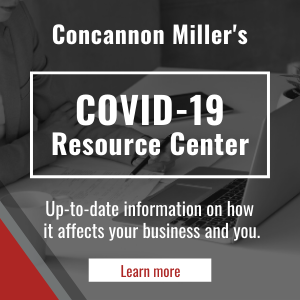 As businesses continue to struggle under the weight of the novel coronavirus (COVID-19) pandemic, astute manufacturing owners and managers are looking for ways to adapt to the new normal.
As businesses continue to struggle under the weight of the novel coronavirus (COVID-19) pandemic, astute manufacturing owners and managers are looking for ways to adapt to the new normal.
One way to do this is to pivot from standard product lines into new niches. Although pivoting may enable your company to sustain operations during this time of crisis, changing gears can also raise other long-term strategic questions that you'll need to consider.
What's Your Destination?
If your company has historically made products that aren't deemed essential in the current crisis, you could end up with a large supply during a time of low demand. Take an in-depth look at the basic capabilities, resources and equipment you have and consider innovative ways to repurpose them.  For example:
For example:
- A manufacturer with metalworking or fabrication equipment could make hospital furnishings, such as beds, lamps and tables.
- A producer of plastics for consumer goods might shift to manufacturing personal protective equipment, such as face shields, gloves and drop sheets.
- A company with sewing skills and machines could make protective clothing, masks, gowns and bedding.
Some of the goods in greatest demand now — and for the foreseeable future — are cleaning and sterilizing products, such as hand sanitizer and disinfectants. Many alcohol and perfume manufacturing have successfully pivoted to producing these goods. If you want to keep workers employed and your company operating, look for similar high-demand areas or unmet needs and pounce on them.
READ MORE: 8 Successful Post-COVID 19 Pivot Tips for Businesses
How Are You Getting There?
If you switch gears, know that you'll encounter several challenges. You'll need to determine how to make the new products, how to adapt current resources to their production and how to produce them cost effectively. This last point can be tricky, so be sure to get input from your financial advisors.
Finding the funds to make production shifts is another challenge. If you haven't already, investigate loans made available under the Paycheck Protection Program and the Small Business Administration's Economic Injury Disaster Loans. Many states and municipalities also offer loans and grants for small businesses.
READ MORE: Manufacturers: Tips to Increase Safety, Productivity During the COVID-19 Crisis
How Will You Keep Everyone Safe?
You'll need to think about putting new safety policies in place that protect workers on the floor, employee in offices and visitors to your premises. Require employees to wear masks — even when work doesn't require it and workers aren't in close contact with one another. Be sure to set an example by wearing a mask yourself.
You may have to reconfigure your production line to give workers extra space and minimize contact between coworkers. Staggering the start and end times of work shifts, as well as lunch and break times, can also facilitate social distancing practices in your workplace. Consider implementing temperature checks at the factory gate, using scanning thermometers that don't require touching skin. Opening doors and windows — or installing fans — can help increase ventilation.
Also increase the frequency of professional cleaning. Instruct your cleaning crew to use soap and water in addition to disinfectant to help eliminate germs from surfaces. They should focus on frequently touched surfaces, including sinks, faucets, toilets, tables, doorknobs, light switches, handles, keyboards and phones. Provide hand sanitizer or handwashing stations and require employees to wash their hands often.
Let your workers know that their safety is a priority for the company. Explain the extra precautions you're taking to provide a healthy environment. Ask them, in turn, to follow new health and safety rules so that everyone can work comfortably and productively.
New Reality
Like other industries, the manufacturing sector must adapt to new realities. By maintaining flexibility and changing when necessary, you can keep your company afloat during the current crisis and emerge from it in a relatively strong position.
© 2020





